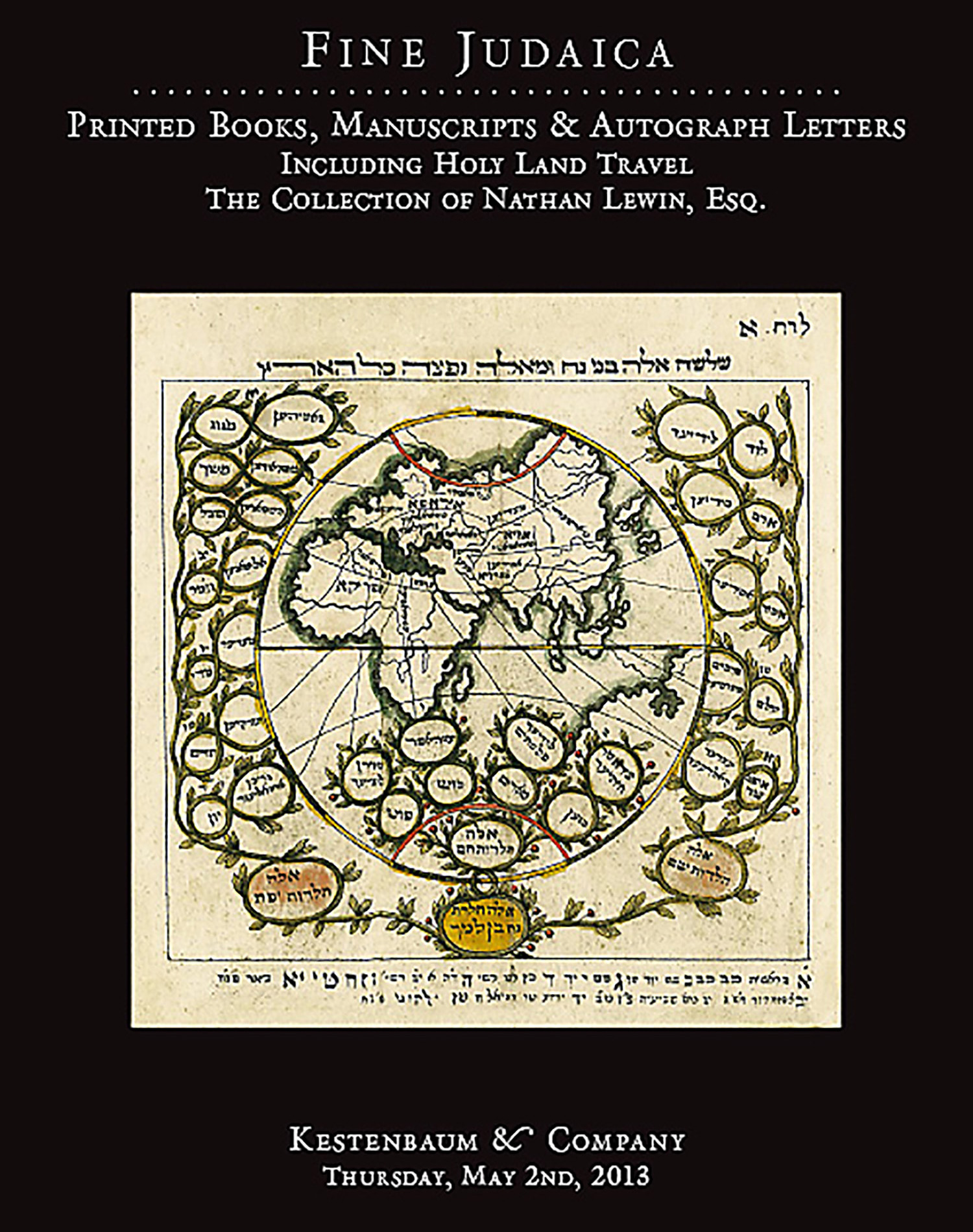(SCHWAB, LOEB)

AUCTION 58 |
Thursday, May 02nd,
2013 at 1:00
Fine Judaica: Printed Books, Manuscripts and Autograph Letters
Lot 385
(SCHWAB, LOEB)
(Prossnitz-Gewitsch: 1823-26)
Est: $2,500 - $3,000
R. Schwab had a traditional upbringing and studied in his youth at the Yeshivah of Mordechai Bennet and the Chasam Sofer, and was later educated by Rabbi Joachim Deutschmann. Schwab served as a Rabbi in Gewitsch, Prossnitz and as Oberrabbiner in Budapest. He was a conservative and sanctioned only those reforms in the religious services which, in view of changes in esthetic standards, were absolutely necessary to prevent the better-educated classes of the community from becoming alienated from the synagogue. He was the first rabbi in Moravia to preach in German and to perform the wedding ceremony in the synagogue (1832). Despite this, even the more traditional Chasam Sofer entitled R. Schwab: HaMaor HaGadol HaMuflag (“the great light and scholar”) when corresponding with him concerning a bill of divorce (see Responsa Even Ha’ezer, Part 2, no. 11.)
Present here are a collection of unpublished homiletic notes and sermons for the holidays and various occasions delivered during his time in Prossnitz. Alongside the Hebrew notes he added dates and names in Latin letters – likely occasions where the sermon was delivered. He also added his own names multiple times in different forms: Leopold Schwabe, Lew Schwab, Löw Schwab (all in Latin letters.)
Among names recorded is Veith Ehrenstamm (f. 19a). Ehrnstamm was a Jewish industrialist from Prossnitz who supplied the Austrian army with goods during the Napoleonic War. In 1821, Schwab was employed as Ehrnstamm’s private Rabbi and provided religious education (Hauslehrer) for his children in Prossnitz. On f. 19b contains a draft of a letter to an apparently wealthy individual, “Chaim Hersh” concerning the studies of his son. He beseeches him to support his son and not leave him to his own devices in a strange land. If he receives help, he will surely grow in Torah.
